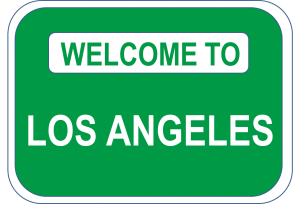Rebecca Lyles's Blog, page 12
June 21, 2014
Edupreneurism
Take a deep breath. That’s not really a word. At least I hope it isn’t. But I did see a professional profile recently in which someone identified himself as an “edupreneur.”
This trend of cobbling together parts of legitimate words to make clumsy, unfamiliar new words is now officially out of control. And the trouble with these mermaid words is that they make neither good humans nor good fish.
A few years ago television started to produce “docudramas,” part documentary and part drama. The term docudrama justified dressing up the truth (the documentary part) in order to make it more interesting to watch (the drama part). Viewers remembered the drama part and catalogued it as truth in their memories.
They quoted famous characters, not realizing the lines were composed by a scriptwriter…something the character might have said, but didn’t.
A similar treatment of educational subjects was called edutainment. Yep, education disguised as entertainment. Sugar-coated education meant well, but it conditioned students to expect all learning to be effortless. It was great for toddlers with short attention spans and it tasted like candy. But eventually they had to grow up and face the broccoli. Knowledge is its own reward and it involves real work.
Russian history, neurophysiology, and getting your real estate license all have one thing in common—they don’t come with animated characters or sound effects.
When you hit your audience with a word you know they won’t recognize, communication comes to a halt. The invented combo-word often seeks to legitimatize something the user is trying to hide. By combining two disparate ideas, you raise the question: which of them is more important? If you’re an edupreneur, are you more interested in teaching me something or taking my money for an—ostensibly—educational product?
Where does it all end? For advice on building an investment portfolio, shall we go to a financitecht? To get a headshot for a print ad, do we look up an advertographer? If we’re depressed but really enjoy the symphony, do we need a musichiatrist? Try looking those up in a city directory. Or stating them as your occupation on income tax returns. I guarantee you won’t find them on a Career Builder drop-down list.
I’ve been searching for a word that describes someone who hacks off the end of one word, the beginning of another, and sticks the pieces together with duct tape. Finding none, I invented one.
That person should be called a:
 Sounds good. I think I’ll get some business cards printed up …
Sounds good. I think I’ll get some business cards printed up …
June 14, 2014
Anthropomorphize this
 Anthropomorphism. An almost unpronounceable word… giving human characteristics to something that isn’t human. It has a long tradition in mythology and fiction, as we associate human traits—even genders and names—with hurricanes, star formations, and sailing vessels. It’s not altogether a bad thing. Without it, there would be fewer fairy tales and Disney movies.
Anthropomorphism. An almost unpronounceable word… giving human characteristics to something that isn’t human. It has a long tradition in mythology and fiction, as we associate human traits—even genders and names—with hurricanes, star formations, and sailing vessels. It’s not altogether a bad thing. Without it, there would be fewer fairy tales and Disney movies.
It even makes sense for an animated bear to tell children they shouldn’t start forest fires.
But many advertisers think anthropomorphizing is cute… and cute sells. So they make some very odd things into little characters with faces and voices, and you have to wonder what message they’re trying to communicate:
A pest control service portrays termites as lovable little characters with Alvin-and-the-Chipmunks voices. Termites are not lovable. The object is to kill them before they eat your house.
Another pest control service shows a man holding a giant hammer behind his back, staring at an adorable little mouse with a quizzical look on his face. Mice and rats are vermin, and you don’t want them in your house. If they’re cute, do you still want to kill them?
A brand of chicken portrays two scruffy characters as wannabe poultry candidates their company would never accept. They lie about being all natural, hormone-free, and so on. Think about this. They’re not trying to get into Stanford. They’re trying to be accepted by a chicken processing plant where they will be killed and eaten. Who does that, even in cartoons?
Humanizing in commercials is not always bad—but it seems counter-productive if the point is to eat or eradicate the humanized character.
Anthropomorphism also creeps into technical and business writing. Especially those books with titles like “Quantum Physics Made Ridiculously Easy for Complete Idiots.” Some things just shouldn’t be trivialized, humanized, or animated. And trying to make them fun (1) usually fails, and (2) does nothing to make the subject easier to understand:
If the system thinks the printer is not installed, it will give you an error message.
Other applications might be interested in the information you’ve stored in your database.
The barium sulfate particles resulting from the reaction want to fall to the bottom of the tube.
Processors of that type don’t understand FORTRAN syntax.
Computer systems and chemicals don’t think, express interest, want to fall, or understand. They detect, access, precipitate, and interpret. If you’re tempted to humanize the subjects of your writing, ask yourself if it will enhance your message or confuse the reader.
My favorite quotation on this subject is from Michael Ernst, a professor of Computer Science and Engineering at the University of Washington:
“Don’t anthropomorphize computers. They hate it.”
The post Anthropomorphize this appeared first on TextCPR.
June 7, 2014
Voice of the customer
 Businesses conduct surveys under the guise of communicating with their customers. They want to know what you think—what you want. This research is supposed to guide their decisions about how to serve you better.
Businesses conduct surveys under the guise of communicating with their customers. They want to know what you think—what you want. This research is supposed to guide their decisions about how to serve you better.
In many cases, they respond with better products or faster service. But in others, the survey is just an excuse to do something they were going to do anyway.
It happens internally within big businesses too. For example, the champion for a multi-million-dollar software system builds a case for adopting the system. She conducts a “needs assessment” and disregards any results that don’t support her cause…highlighting whatever data justifies making the purchase. She, of course, will oversee its installation, publicize it among the employees, and manage the system when it’s adopted.
This can take two or three years. Decisions based on this kind of data manipulation seldom succeed, but by the time they fail, the champion has moved on to another project. It’s called a solution in search of a problem. In huge companies, some people remain employed for years by doing this over and over.
I once worked for a small company that hired a PR firm to enhance its image. The PR group conducted a customer survey (“What is most important to you?”) and announced that a new set of company goals would be the result. Customers said our products were unreliable, costly, and inferior to competitors’ products. But when the products failed, we gave quick turnaround on repairs.
The only thing we did well was fix things that shouldn’t have broken in the first place.
The new-image campaign resulting from this survey went something like this: Great news! Customers love our repair service! It’s what they like most, and it’s our new #1 goal! The company did nothing to improve the quality of its products and reduce the need for repair returns. Hard to believe, I know, but they went out of business. The only people who made money from the survey were the PR folks.
The Voice of the Customer is worth listening to, but too often the survey is just an excuse to twist the responses and justify a predefined outcome. This phenomenon is not limited to business. I’ve seen it at work in politics—I think politicians invented the technique—social groups, communities, and even churches.
Example: Small church, limited budget. Chairman of the church board surveys the congregation on their priorities for allocating the church money. Typical suggestions include roof repairs and better salaries for the clergy. But one elderly parishioner, who refuses to use his hearing aids, complains that he cannot hear the sermons.
So the board chairman announces the survey results: the people want a new sound system. And that’s how the money is spent. Can you guess what business the chairman is in? That’s right—sound systems.
I don’t wish him any harm, but if he were struck by lightning, I’d like to think it was divine intervention.
The post Voice of the customer appeared first on TextCPR.
May 31, 2014
What’s in a name?
 Sometimes the names we’re born with don’t go well with businesses or jobs we choose as adults. You can change your name, of course, or just put up with the jokes if the name sounds funny with your chosen occupation.
Sometimes the names we’re born with don’t go well with businesses or jobs we choose as adults. You can change your name, of course, or just put up with the jokes if the name sounds funny with your chosen occupation.
But if you’re naming a business, it’s wise to give serious thought to your choice.
I’ve heard of several orthopedic surgeons and dentists name Dr. Payne. Those professions would also be problematic if your name were Hertz. Try saying to your six-year-old, “Get your jacket, we’re going to see Dr. Hertz!” (Picture struggling to stuff Garfield into a cat carrier when he knows he’s going to the vet.)
There are lots of dentists named Dr. Chu, but that one’s just cute.
Dr. Dement, a professor of psychiatry at Stanford, must have a sense of humor. The former Archbishop of Manila, Jaime Sin, enjoyed a good laugh when people called him “Cardinal Sin.”
Whalen is an unfortunate name to have if you’re an animal rights activist. Griese is not a good name for a gourmet chef, a lawyer named Cheatham is a walking punchline, and (I couldn’t make this up) there is actually a Dye Funeral Home. If you’ve grown up with a strange name all your life, it has lost its strangeness and just sounds like family to you. You might be proud of it, but if your fine old family name is Hitler or Bin Laden, please call your business something else.
On a Virginia highway, I once saw a panel truck with this sign: “Peed Plumbing – Let your drains flow freely.” I hope that’s a family name, because if someone chose it for the business, that’s just wrong.
If your business might relocate, don’t name it after the original location. Blackstone TV and Appliance moved from Blackstone Avenue to Cedar Avenue, but it’s still named Blackstone TV and Appliance. Shields Medical Clinic long ago moved from Shields Avenue to Herndon, but it’s still called Shields Medical Clinic. Even if you think you’re never moving, no one knows what the future holds. You can’t easily rename your business just because you lost your lease.
At least think about how your business name looks on a sign or a truck, and be careful about spacing and placement of the words. Yesterday I saw a big, heavy truck with this sign on the door:
AAA Battery
Delivery & Installation
Aren’t AAA batteries those tiny ones that power small electronic devices? You need a truck to deliver and install those?
The post appeared first on TextCPR.
May 24, 2014
World renounced doctor
 In a medical office waiting room, I recently noticed one of those flat-screen monitors with messages about health issues, interspersed with promos for various doctors affiliated with the practice.
In a medical office waiting room, I recently noticed one of those flat-screen monitors with messages about health issues, interspersed with promos for various doctors affiliated with the practice.
I think the idea is to give you something besides old magazines to read and to remind you to eat healthful food and get lots of exercise… while you’re waiting to see the doctor who’s going to tell you to eat healthful food and get more exercise.
One of the promos caught my eye because it said the doctor was a “world renounced surgeon,” then it went on to list his many accomplishments. Obviously they meant renowned—eminent, distinguished, and famous. I knew the front desk staff was not responsible for the message content, but I thought they might tell someone who was. When I mentioned the error to them, they gave me a blank stare.
I tried to explain that renounced means disclaimed, disavowed, abandoned, and that I didn’t think they wanted to be saying that about the good doctor. More blank stares. Finally, one of them said, dismissively, “Oh—I guess that’s the other meaning.”
By now I’m yelling to myself inside my head. No, it’s two different words! There is no other meaning! The receptionist gave me a patronizing smile and went back to her paperwork. So I went back to reading old magazines.
I’ve often seen renowned misspelled as “reknown” or “reknowned,” I suppose because there is a vague sense that it means well-known and it seems logical to put a letter k in it. But I’d never seen it confused in such a public way with a word that means almost the opposite.
The experience made me question whether, in trying to do the doctor a favor, I had overstepped. I was polite, but the staff reacted as if I were speaking a foreign language or had wandered out of the ward without my meds.
Then I started to think… if the word was intentional, that raises several disturbing possibilities. I guess it depends on who has renounced him and what they renounced him for. It must have been pretty big because it did say world renounced.
If he’s a surgeon by day and a superhero by night, and he has been renounced by the Forces of Evil, I admire him.
If the AMA or the state Medical Licensing Board has renounced him, he might be practicing medicine illegally.
If his wife has left him and is posting it to Facebook friends all over the globe, it’s unfortunate but it’s really none of my business.
Maybe the message should have been more specific.
The post World renounced doctor appeared first on TextCPR.
May 17, 2014
Just name the place
 If you want to pick a fight with someone, all you have to do is mispronounce the name of his hometown. The United States, more like a patchwork quilt than a melting pot at times, is a great place to start.
If you want to pick a fight with someone, all you have to do is mispronounce the name of his hometown. The United States, more like a patchwork quilt than a melting pot at times, is a great place to start.
Our city names with roots in Native American, Spanish, French, and other languages provide endless fodder for heated debate. Some pronunciations have remained true to their origins, while others have morphed into something unrecognizable. A few names borrowed from other cultures seem deliberately twisted as if to apply a local stamp of ownership.
To be fair, Americans themselves mispronounce city names all the time. But we grow righteously indignant when someone from England, Australia, Canada, or Mexico does it.
The American Southwest has countless cities with Spanish names. The number of city names beginning with Las, Los, San, or Santa alone is staggering. Some are pronounced the same way by people both north and south of the Rio Grande. For instance, San Jose is just “san ho-SAY.” Los Angeles, however, is another matter. If you’re a local you probably pronounce it something like “lahss AN ja less,” not “lows AHN heh lace,” unless you also speak Spanish.
But pity the poor tourist who says “loss AN ja leez.” It’s not the plural of a Greek-origin word like crisis for crying out loud. One crisis, two crises. One Los Angelis, two Los Angeleez? Jeez!
There’s a Newark in New Jersey that’s pronounced “NOO-erk.” But there’s also a Newark in Delaware that’s pronounced “noo ARK.” That’s right—as in—Noah replacing his boat.
Las Vegas (no, not “Lost Wages”) is from Spanish. So the first syllable rhymes with mas, not mass.
People from Spokane, Washington, a city with Native American roots, bristle when others pronounce it “spo CANE” instead of “spo CAN.”
In the Big Easy, they don’t like you to say “noo OR lee uns” in four syllables. Most tourists get by with a middle-of-the-road “noo OR lins” although the natives just shorten it to “nawlns,” which sort of rolls around inside the mouth and falls out in one under-articulated syllable.
A town in Indiana named Versailles is pronounced (I’m not making this up) “vur SALES.” I don’t recommend using that pronunciation if you’re visiting the palace and gardens in France. But if you’re in Indiana and call it “vare SIGH,” you’ll be instantly tagged as a troublemaker and the sheriff will probably follow you around until you leave.
I understand Aussies get annoyed when people pronounce Melbourne “MELL burn” instead of “MELL bin.” And the British can be generally impatient with all American pronunciations. But, really, what can you expect when you spell something C-H-O-L-O-M-O-N-D-L-E-Y and pronounce it “CHUM lee?” What a waste of perfectly good letters.
In short, travelers would do well to find out the correct local pronunciations of places they visit. It helps you avoid condescending looks, enhances your enjoyment of the trip, and makes you thankful you’re not going home to that village in Wales called:
Llanfairpwllgwyngyllgogerychwyrndrobwllllantysiliogogogoch.
When tourists are not around, I hear the locals just call it Llanfairpwllgwyngyll for short.
The post appeared first on TextCPR.
May 10, 2014
Text underlay
 That’s a geeky music term for the alignment of sung syllables with notes in a melodic line. It involves the matchup of syllables to notes and also deals with the natural stresses of meaning and harmonic rhythm. Open vowels on long notes, properly spaced consonants, and so on.
That’s a geeky music term for the alignment of sung syllables with notes in a melodic line. It involves the matchup of syllables to notes and also deals with the natural stresses of meaning and harmonic rhythm. Open vowels on long notes, properly spaced consonants, and so on.
I warned you it was geeky. But maybe it will help you explain to your children why it’s not OK to repeat something just because they heard it in a song.
Vocal music often ignores the rules of grammar for the sake of text underlay. Also for the sake of authenticity (depending on the genre) or cultural effect, or just plain shock value. We can eliminate several genres from this discussion right now. Rap, hip-hop, country, reggae, rhythm and blues, heavy metal…you get the idea. Correct grammar in those songs would sound out of place. So what’s left? Mainstream pop, romantic ballads, adult contemporary, anything without a cultural basis that justifies butchering the language. And that brings me to Neil Diamond.
Remember this gem?
Songs she sang to me
Songs she brang to me
Words that rang in me
Rhyme that sprang from me
Warmed the night
And what was right
Became me
Brang? Really? So committed to four rhyming lines that he shoe-horned in a word that doesn’t even exist? Nice text underlay but atrocious grammar. It’s not the Rolling Stones (I Can’t Get No Satisfaction), it’s not Elvis (You Ain’t Nothin’ but a Hound Dog), and it’s not Caribbean dialect (Day-O), so one wrong word sticks out. Did he think no one would notice? The lyrics are about the artist’s muse and how she inspired him to write good songs. Apparently the muse was on a coffee break when he wrote this one.
Text underlay and grammar could have coexisted with something like:
Songs she’d sing to me
Songs she’d bring to me
Words that ring in me
Rhymes that breathlessly,
Warm the night
And what was right
Became me
Scoff if you will, but the best adherent to proper text underlay in modern music is Weird Al Yankovic. His parodies are classic examples of perfect text underlay, and the occasional grammatical lapses are calculated, precise, and consciously done for comedic effect. No rhymes are ever awkward or forced.
I might never forgive Neil Diamond, but I do acknowledge the need for nonstandard English in many kinds of music. In his 1957 radio show, Stan Freberg did a classic version of “Old Man River” with proper grammar as a comedy bit.
When Heyward and Gershwin wrote “Bess, You Is My Woman Now,” the text underlay just wouldn’t have worked if someone had corrected it to “Elizabeth, You Have Officially Become My Significant Other.”
The post Text underlay appeared first on TextCPR.
May 3, 2014
A cautionery tale
 Yes, I know it’s misspelled. This is about words that some people spell with –ary, but shouldn’t. Cautionary is one that does end in –ary.
Yes, I know it’s misspelled. This is about words that some people spell with –ary, but shouldn’t. Cautionary is one that does end in –ary.
The next time you’re browsing in a quaint European village, admiring the local stationery, stitchery, or confectionery, touring a monastery with a stone-walled cemetery… remember: That wall is not made of masonary. In fact, there is no such word as masonary, despite what the tradesman building your stone wall might argue. The word is masonry. Three syllables, not four.
It’s possible that the guy stringing the barbed wire on your ranch calls it “bob wire” too (another topic), but that doesn’t make it correct.
This commentary might make me an adversary to some who don’t know an aviary from an apiary, but, though opinions vary and I’m hardly a literary luminary, my thoughts are far from arbitrary. And anyway, your participation is strictly voluntary.
If we discount masonary, which has an added letter, making it a non-word, I’ve recently seen these four words misspelled – in print – or on the Internet (which almost doesn’t count):
monastary (instead of monastery
confectionary (instead of confectionery)
cemetary (instead of cemetery)
stationary (instead of stationery)
In defense of the last one, stationary is at least a real word. It means fixed, not moving. But if it’s writing paper you want, it’s stationery. Those two can be confusing. The other three aren’t even in the dictionery – I mean, dictionary.
My goal here is not to debate the fine points of grammar. So-called experts disagree on “rules” and whether common usage should drive acceptance. But I weigh in when nonstandard constructions or spellings misdirect what you’re trying to communicate. If there’s an –ery where there should be an –ary (or the reverse), it’s either misleading or distracting, or both.
Words ending in –ary are most often adjectives, although they can also be nouns. Words ending in –ery are usually nouns, but you can’t depend on that as a rule either.
Writing is a solitary pursuit. But if you have an ordinary vocabulary, don’t suffer an imaginary coronary. Take a temporary, momentary break. Search your online library or dictionary.
Just remember that language can be fluxionary, but spelling is necessary, so be wary.
Scary?
Very.
The post A cautionery tale appeared first on TextCPR.
April 26, 2014
Artisans being artisanal
 I’m not sure when it happened, but a few years ago a new bandwagon came through town and everyone jumped on it. Organic food was in, handmade was deemed better than mass-produced, and terms like natural and handmade became marketing buzzwords.
I’m not sure when it happened, but a few years ago a new bandwagon came through town and everyone jumped on it. Organic food was in, handmade was deemed better than mass-produced, and terms like natural and handmade became marketing buzzwords.
The current use of artisan and artisanal in advertising was a natural result of this trend, but few could have predicted the heights of idiocy it would reach.
Those words, meaning handmade or produced individually by some artistic process, originally suggested a superior alternative to factory-made goods. Now they’re applied to items that have always been created by hand. In fact, it’s hard to imagine producing them any other way. A restaurant in San Francisco announces artisanal toast. That’s right, the bread is sliced by hand, some kind of spread is applied by hand, and it is placed in a toasting device…all by hand! Hard to believe, I know. Obviously it has to taste better than ordinary toast, made in a factory, the kind we all grew up on.
A national fast-food chain, known for its 30-minute delivery guarantee, advertises artisan pizza. If it’s so painstakingly hand-crafted, I wonder if they still guarantee it will reach you in half an hour. Do the guys make it in the car, on the way to your house? And what’s that other stuff they’ve been delivering to us all these years?
An upscale bar advertises artisanal cocktails, mixed while you watch and garnished with fruits and vegetables organically grown and sliced by hand. Thank goodness we don’t have to get our martinis and margaritas out of that impersonal vending machine anymore.
For a dry, funny take on the overuse of artisan and artisanal, check out a book called “How to Sharpen Pencils”, by David Rees. Everything you ever wanted to know—and more—about the art of sharpening pencils by hand. Mr. Reese will even artisanally sharpen a pencil and send it back to you for a hefty price. But you must expect to pay for such quality and craftsmanship, right?
And that brings me to advertising. I see lots of ads created by people who have no idea what artisanal—let alone words like bespoke, charcuterie, or luthier—mean. In order to understand whether your product is truly artisanal, do a little research before throwing the word around in an expensive ad. Are you offering a true alternative to something mass-produced? Maybe other words would describe your product or service better and more accurately.
Savvy customers recognize hype when they see it nowadays, especially since everyone claims to be an artisan and every product is a work of art. So are you selling something that’s better than its factory-made counterparts with consistent processes, measured tolerances, and mass-production economy? I want a car that was made in a factory. Even if I trusted it, I couldn’t afford a car made entirely by hand.
At least, if you choose to use the words artisan or artisanal, get it right. Today I saw a magazine ad for a hairstylist who describes herself as a “Manhattan Hair Artesian.” A large, expensive ad ($1600 per placement—I looked it up), and she’s going to give you a hairdo that looks like a natural spring? Water spouting out the top of your head? Or is water spouting out the top of her head? Either way…
Thank goodness it’s not one of those hairstyles that rolls off the assembly line just like everyone else’s. And, unlike other stylists, she’s going to style your hair by hand. The services are probably expensive, but she (not some robotic arm) is actually going to hold the shears and the blow dryer. And misspelled or not, someone has to pay for those artesianal ads.
The post Artisans being artisanal appeared first on TextCPR.




